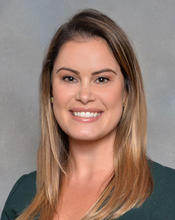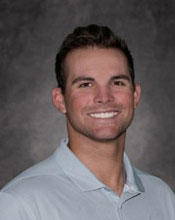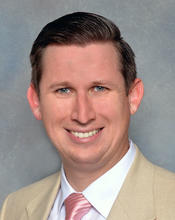Invest in yourself with a Master of Science in Real Estate Development from the Costello College of Business at George Mason University.
You'll get hands-on training from industry leaders and professors with real-world experience.
The Master of Science in Real Estate Development (MRED) at the Costello College of Business prepares future real estate leaders in real estate investment, development, and entrepreneurship and a curriculum focused on hands-on learning, case studies, site tours, simulations, and guest lectures. The 33-credit program includes core courses like Sustainable Real Estate Development and Affordable Housing Fundamentals and electives on emerging trends such as Data Center Development. Students customize their experience with a flexible Experiential Learning Requirement, selecting local projects, national case competitions, or global real estate opportunities. Resources like the MRED Mentorship Program and dedicated career advising help students to achieve their goals in the real estate industry.

"Among a variety of other things, George Mason always emphasized two important topics: staying relevant and knowledgeable, and building your network. Those two principles have really helped me grow in the industry."
Request More Information
To learn more about the Master of Science in Real Estate Development, submit this form:
Curriculum
The Master of Science in Real Estate development program requires 33 credits (11 courses): 24 credits of required core classes (8 courses) and 6 credits of elective classes (2 courses), and 3 credits of an Experiential Learning Selective (1 course).
The program's core curriculum delivers real-world applications and essential knowledge for success in the real estate development industry. Electives allow you to explore specialized topics aligned with your interests and career goals. You’ll complete your degree with an experiential learning requirement, choosing from opportunities in local, national, or international markets.
Explore Degree Requirements
See courses and electives for the Master of Science in Real Estate Development program in George Mason's University Catalog.
The University Catalog is the authoritative source for information on program requirements and courses. Requirements may be different for earlier catalog years.
Sample Course Schedule
See a sample class schedule to discover how our degree program can fit into your work and life.
The Center for Real Estate Entrepreneurship
Bridging the gap between academia and practice, the Center for Real Estate Entrepreneurship addresses the issues affecting the real estate industry and the future of the built environment. Our programs provide participants with practical, hands-on learning opportunities that bring people together in one of the country’s premier real estate markets.
The Center acts as a catalyst between the Master of Science in Real Estate Development program and the real estate industry, providing a forum for professional development and offering unique opportunities to connect with the real estate development community through social events, educational events, and industry organization memberships.
Scholarships
Costello's Master of Science in Real Estate Development program is able to award several scholarships each year thanks to the generosity of our alumni, advisory board, and members of the Northern Virginia real estate industry. Discover exclusive scholarships available thanks to the generosity of our alumni, CREE advisory board, and members of the Northern Virginia real estate industry.
Meet Your Instructors
Our real estate development faculty live, work, and consult in the Washington, D.C., area and draw on their real-world experience to enrich classroom instruction. In addition to their teaching duties, they serve as your mentors and are involved in every aspect of your education.
Faculty members include:
| Name | Course | Core/Elective | ||
|---|---|---|---|---|
| May Abou Ghazaleh | REAL 605 Policy & Planning for the Built Environment | Core | ||
| Roy Barnett | REAL 790 Development Modeling in Excel | Elective | ||
| Alyson Bode | REAL 615 Brokerage and Market Analysis | Core | ||
| Patrick Connors | REAL 730 Financing Real Estate Projects | Elective | ||
| Michael Curran | REAL 750 Capstone | Core | ||
| Alex Gross | REAL 740 Real Estate Investments | Elective | ||
| Mark Hassinger | REAL 635 The Development Process | Core | ||
| REAL 655 Design and Construction | Core | |||
| REAL 720 Real Estate Leadership and Project Management | Elective | |||
| Roger Lin | REAL 790 Real Estate Investment Fund Management | Elective | ||
| Rick Nishanian | REAL 645 Law & Entitlements | Core | ||
| Coleman Rector | REAL 710 Real Estate Leadership & Project Management | Elective | ||
| REAL 790 Real Estate Investment Fund Management | Elective | |||
| Hector Salazar | Elective | |||
| Dave Sislen | REAL 625 Real Estate Financial Analysis & Valuation | Core |
What Our Alumni are Saying

"This...program has been nothing but the best to me and for me and I have recommended it to everyone I can. If you have an opportunity to join it, then please do. It was created by the top minds in corporate real estate for a reason."
Read Ryan's story here

"For me, the program has led to a unique, three-dimensional understanding of the machinery that drives the development process and the industry itself. Lessons I have learned in the classroom have already been applicable to my work in land planning and affordable housing."
Josh Fornwalt, MRED ‘18, Proposal Manager at JLL
Frequently Asked Questions
If you have additional questions, call us at (703) 993-8006.
Who should enroll in this program?
This program was designed for professionals at all stages of their real estate careers.
What are some typical student backgrounds?
Our students come from a wide range of sectors within the real estate industry including:
- Real estate development
- Brokerage
- Architecture
- Civil engineering
- Construction and project management
- Real estate finance
- Real estate law
When are classes held?
Classes are taught in the evening at Mason Square (Arlington Campus), with some elective courses available at our Fairfax campus or online.
Is the MS in Real Estate Development program STEM-designated?
No, the master’s in real estate development is not a STEM-designated program. Graduating master’s in real estate development students on an F-1 visa can be eligible for up to 12 months of Optional Practical Training (OPT). However, students can make their MBA into a STEM-designated program by pursuing a dual master’s degree with the MS in Business Analytics or the MS in Finance. With this STEM designation, F-1 students can extend their OPT period by up to 24 months. For information regarding individualized dual master’s degree programs of study, please contact the Graduate Admission Team.
What career services do you offer for current students?
Our career consulting and leadership coaching method provides strategies to leverage career opportunities and strengthen leadership skills. Our coaching is tailored to your unique professional situation whether you are looking to leverage your degree within your organization, stay in the same field, but move to a different company, transition into a new field or industry, or become an entrepreneur. We offer virtual or in-person one-on-one meetings to make career engagement a convenient process.
Some of the other services we provide include:
- Resume/Cover Letter Help
- Salary Negotiation Tactics
- Networking Activities & Guidance
- Maximizing LinkedIn & Handshake Profiles
- Mock Interviews
- Leadership & Career Coaching
- Career Change Planning
- Personal Branding
- Career Webinars
- Career Exploration Resources
- Online Career Portfolios
What jobs can I get with a Master of Science in Real Estate Development?
Some of the job titles our students and alumni have include:
- Managing Partner
- Director of Development and Construction
- Director of Project Management and Development
- Vice President of Development
- Vice President of Finance
- Project Executive
- Project Manager
- Portfolio Manager
- Land Acquisition Associate
- Land Development
- Project Manager
Where are graduates of the program employed?
Our graduates have found professional success at top companies such as:
- Avalon
- Bozzuto
- CBG Building Company
- DAVIS Construction
- EagleBank
- Foulger-Pratt Companies
- JBG Smith Properties
- Kettler
- Lennar
- Lincoln Property Company
- Madison Marquette
- Peterson Companies
- Pulte Group
- WashREIT
What is the Master of Science in Real Estate Development Alumni Industry Group?
The goal of the MRED Alumni Industry Group is to create a strong network of alumni and to aid in the expansion and promotion of the MRED program at Costello College of Business at George Mason University.
What will I learn?
After earning your Master of Science in Real Estate Development from Costello College of Business, you’ll gain:
- Knowledge of Functional Disciplines: the ability to evaluate projects across different critical dimensions including investment feasibility, sustainability, and long-term asset viability.
- Analytical Decision Making: the ability to analyze project variables and compare different investment scenarios by using appropriate tools, techniques, and information.
- Understanding of Multiple Perspectives and Interests: the ability to evaluate the impacts of competing interests on project outcomes and community development.
- Leading and Managing Complex Projects: the ability to recommend strategies to mitigate risk and enhance project feasibility.
- Professional and Ethical Responsibility: the ability to demonstrate interpersonal communication skills and effective verbal presentation skills.
News from the Master of Science in Real Estate Development Program
- June 27, 2025
- May 12, 2025
- May 12, 2025
- March 25, 2025
- March 19, 2025
